The five power conferences in the NCAA, including the Atlantic Coast Conference, have voted in favor of autonomy when determining guidelines governing student athletes.
The decision was made at a meeting with university leaders from around the nation. UNC Chancellor Carol Folt says the conference included 80 members, one from each of the 65 universities in the power conferences along with 15 students.
“The most interesting part of the conference was the students. They were incredible,” she says. “They had lots to say about these things. This is the first time students have started to be included in their future and the way we think about it with the regulations from the NCAA.”
UNC Athletic Director Bubba Cunningham says the vote for autonomy will allow the power conferences to make decisions that will not include smaller conferences.
“Schools in the BCS conferences now have the right to vote about legislation that would affect them only,” he says.
Chancellor Folt says the primary vote was taking steps to protect the student athletes.
“The initial regulations voted in mostly have to do with things like getting students full cost of attendance, a very strong one that says that students couldn’t lose their scholarships based on athletic performance,” she says.
“That’s a very big commitment. We were already very close to that in our own way of dealing with things, but this makes this true across the conferences.”
Cunningham says they will now be able to provide the full cost of attendance to student-athletes through scholarships.
“We have 800 student-athletes. There are about 300 scholarships that we spread over the 800 students,” he says. “The in-state difference is about $4,000, and the out-of-state is about $6,000.”
Cunningham says the transition will not be smooth, but it will be beneficial for student-athletes.
Chapelboro’s Art Chansky says it is important to stay on the student-athlete side of the line that divides them from employees of universities.
“[Universities] are doing this, this, and this, while retaining the college model,” he says. “They want to stay on that side of the amateur line and never get to the point where the government is going to say, ‘you’re paying them too much, they’re employees.’”
Chansky says crossing that line could result in universities losing certain designations.
The chancellor says the next level of conversation will include governing how many hours student-athletes can commit to their sport, as well as looking at standards for admission and ongoing eligibility for student-athletes.
Related Stories
‹
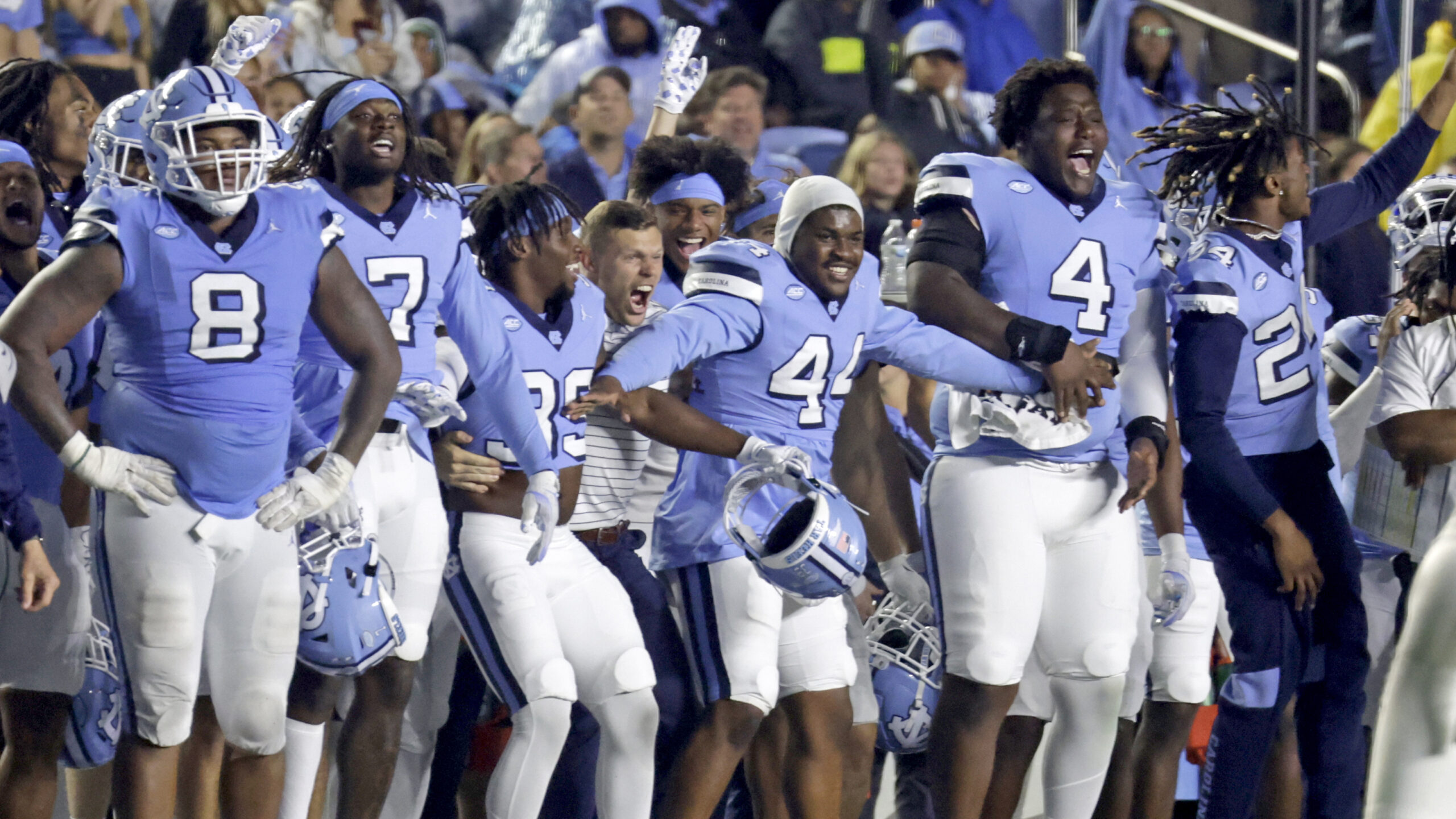
Multiple UNC Athletics Programs Post Perfect Academic Progress Rates; Football Sets New HighTwelve different UNC athletic programs achieved a perfect Academic Progress Rate of 1,000 during the 2022-23 school year and 20 exceeded the national average of their respective sports in their four-year rates, according to a release from the athletic department. A highlight of the latest report is the football program, which achieved a record four-year […]
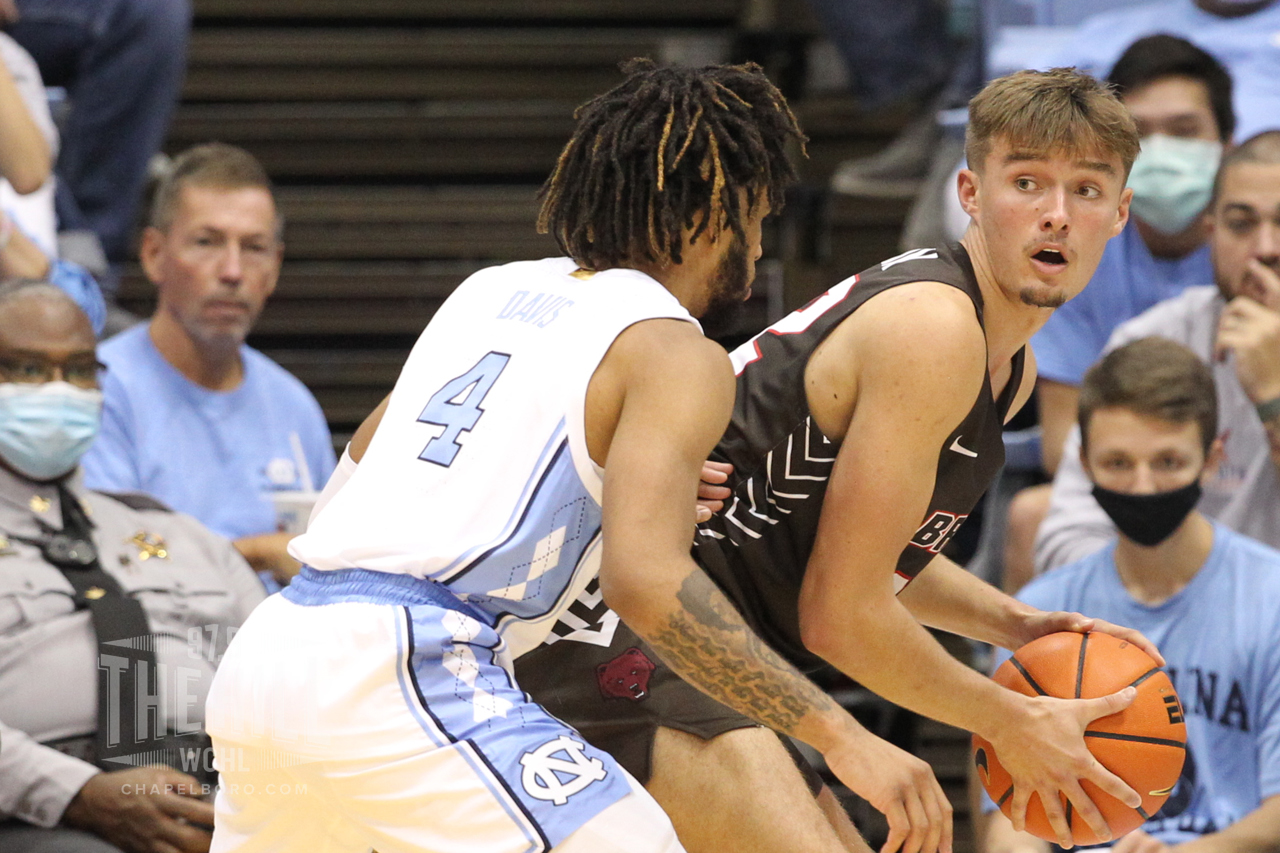
Chansky's Notebook: The PiecesArt Chansky’s Sports Notebook is presented by The Casual Pint. YOUR place for delicious pub food paired with local beer. Choose among 35 rotating taps and 200+ beers in the cooler. Paxson Wojcik, hopefully, is just the first piece of Hubert Davis’ plan. Carolina fans who noticed that Caleb Love entered the transfer portal the […]
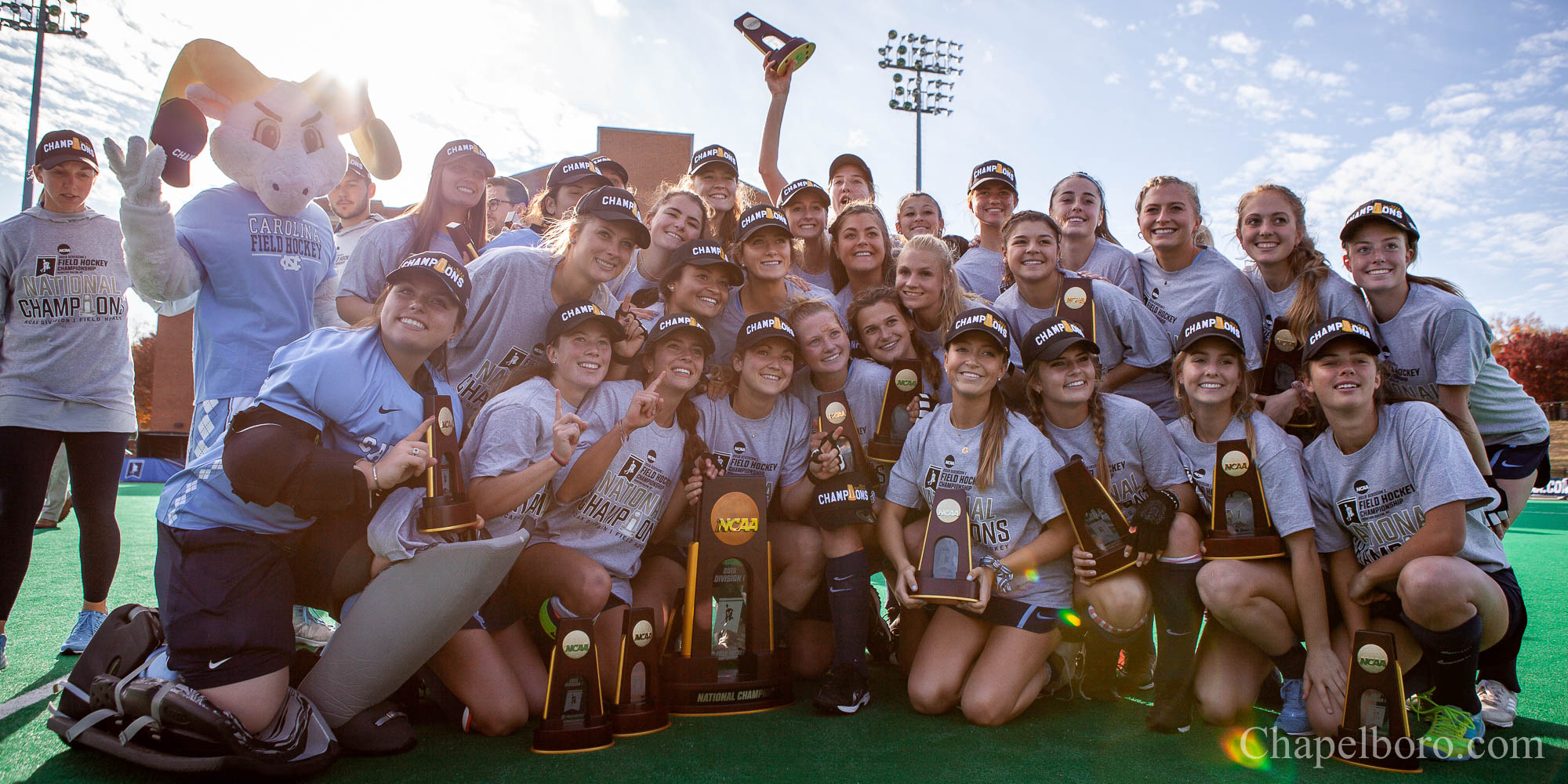
NCAA Cancels Fall Championships as Major Football Marches OnThe NCAA called off fall championship events — a move Thursday that does not affect major college football — because not enough schools will be competing in sports such as men’s and women’s soccer and women’s volleyball during the first semester. NCAA President Mark Emmert made the announcement in a video posted on Twitter, but it […]

NCAA to Allow Student-Athletes to Display Social Justice Messages on UniformsThe NCAA announced on Thursday that its Playing Rules Oversight Panel approved rules to allow student-athletes in all sports to wear patches on their uniforms to support social justice issues. Student-athletes will be allowed two places on the uniform, one on the front and one on the back, to express support and voice their opinions. […]

UNC's Cunningham Pens Letter to Student-Athletes Regarding NIL CompensationIn a letter to UNC student-athletes and coaches, athletic director Bubba Cunningham reiterated his commitment to ensuring that student-athletes should benefit off of their name, image and likeness (NIL) in a system that would support all players. “As we move forward, I want to make sure that my intentions are clear: I absolutely believe that […]
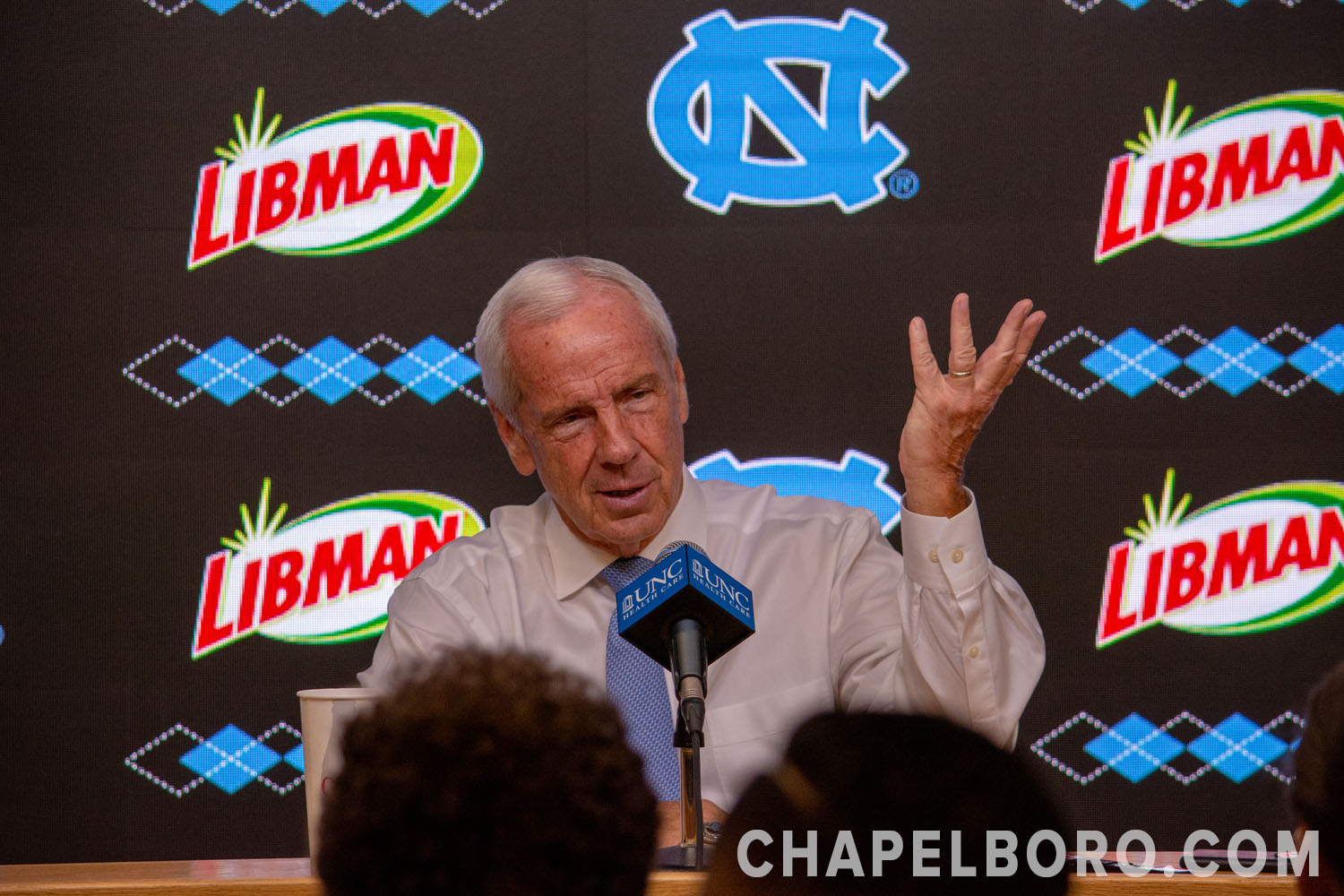
Roy Williams on California Student-Athlete Compensation Law: 'It's Dadgum Complicated'When asked about California’s Senate Bill 206, UNC head coach Roy Williams evoked a phrase said often by the hall-of-famer. “I have no idea,” he said. “It’s dadgum complicated, and it’s going to be coming in 2023. Hell, I hope I’m alive in 2023; I hope I’m still teeing it up.” Williams is right: it […]
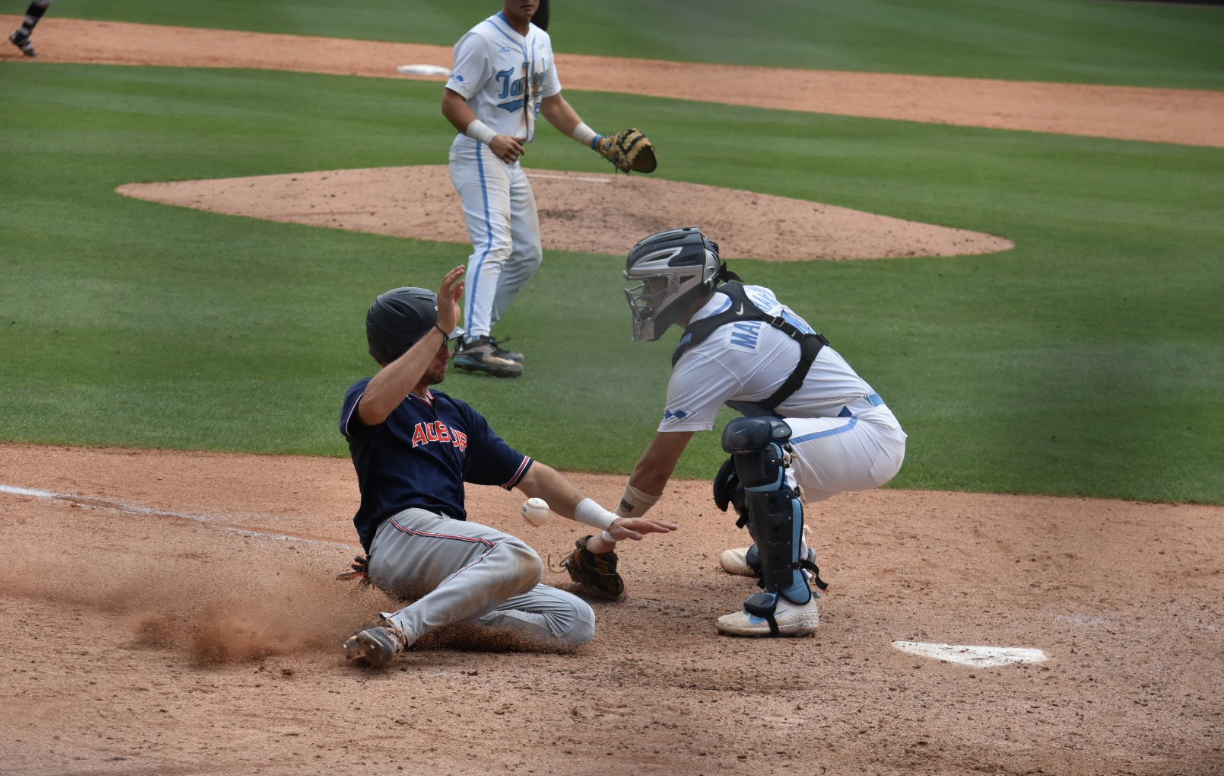
Auburn Knocks Off UNC to Take Game 1 of Super RegionalNine runs across the eighth and ninth inning fueled an 11-7 victory for the Auburn Tigers over UNC to open NCAA Super Regional play on Saturday in Chapel Hill. The Tar Heels jumped out to a 3-0 lead in the first inning, stringing together base hits. UNC starting pitcher Tyler Baum also started off strong […]
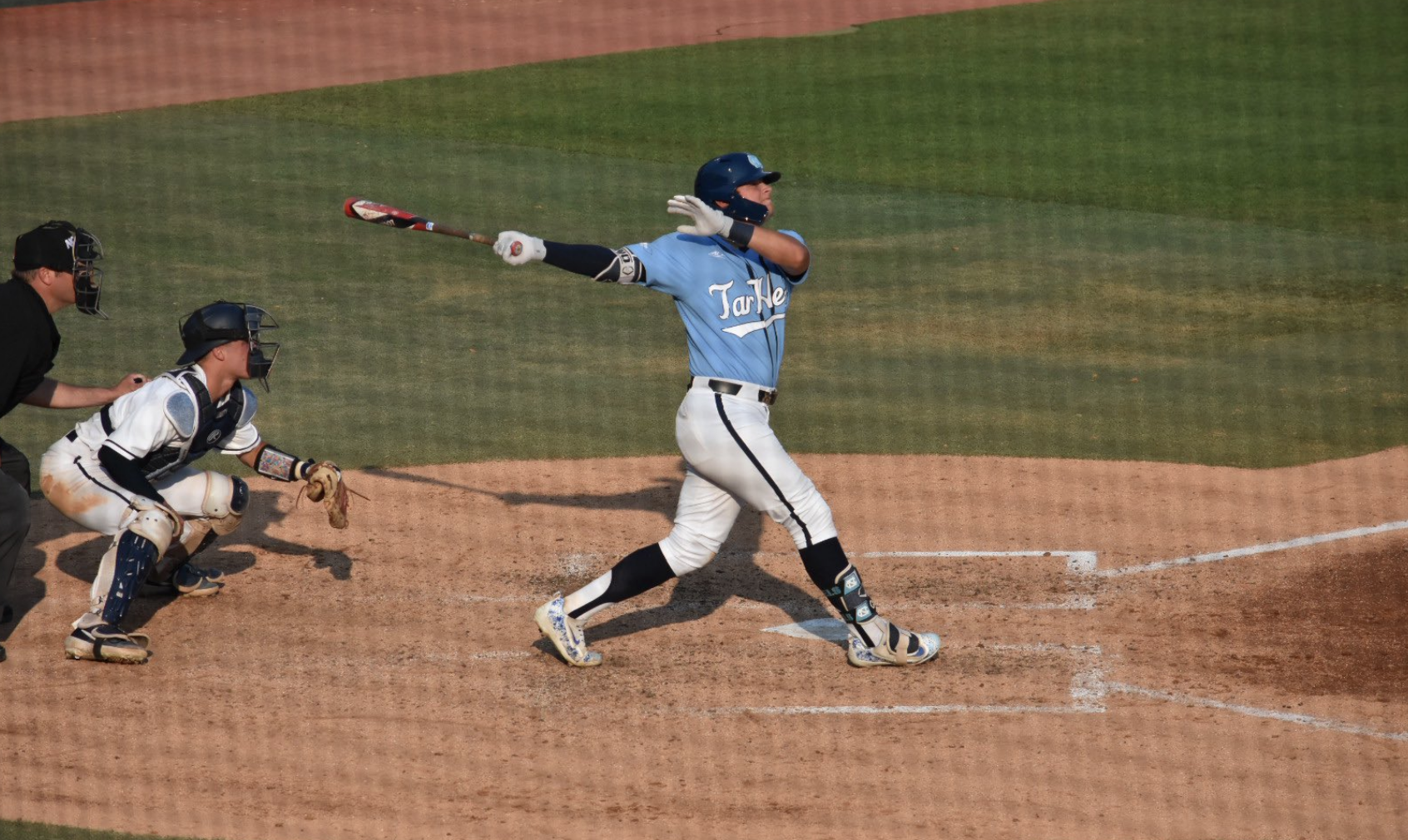
UNC Dominates Liberty in NCAA Regional PlayUNC hit three home runs in the seventh inning to leave no doubt in its domination of Liberty in NCAA Regional play in Chapel Hill Saturday. Dylan Harris homered in the second inning to give UNC a 1-0 lead before a single from Harris in the fourth inning extended the Tar Heels lead to 2-0. […]
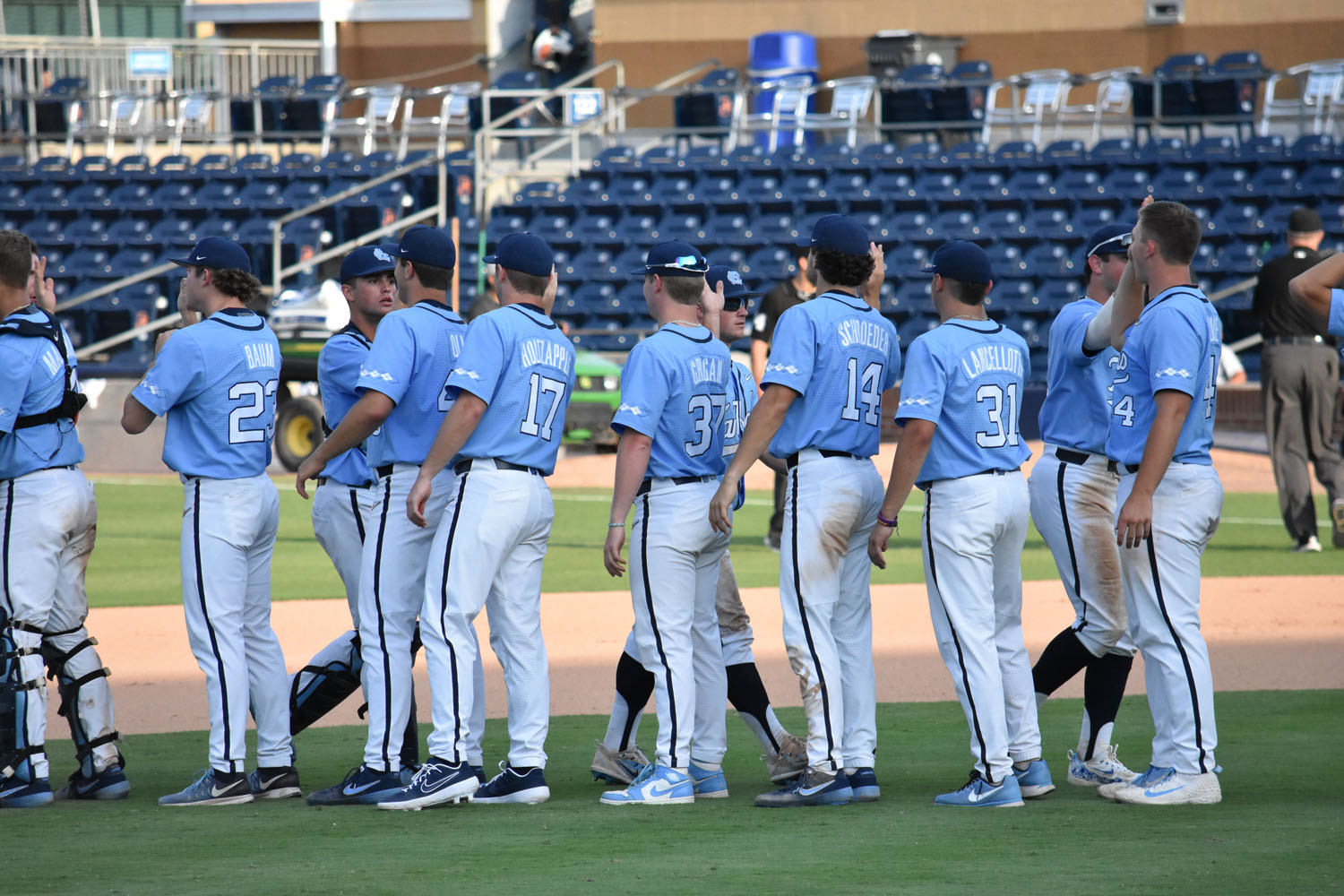
UNC Wins NCAA Tournament Opener in WalkoffNearly seven hours after the first pitch of the NCAA Tournament Regional play in Chapel Hill Friday, UNC came away with a walkoff 7-6 win in nine innings. A back and forth game was halted in the bottom of the ninth inning for three hours due to weather delays with the score tied at six […]
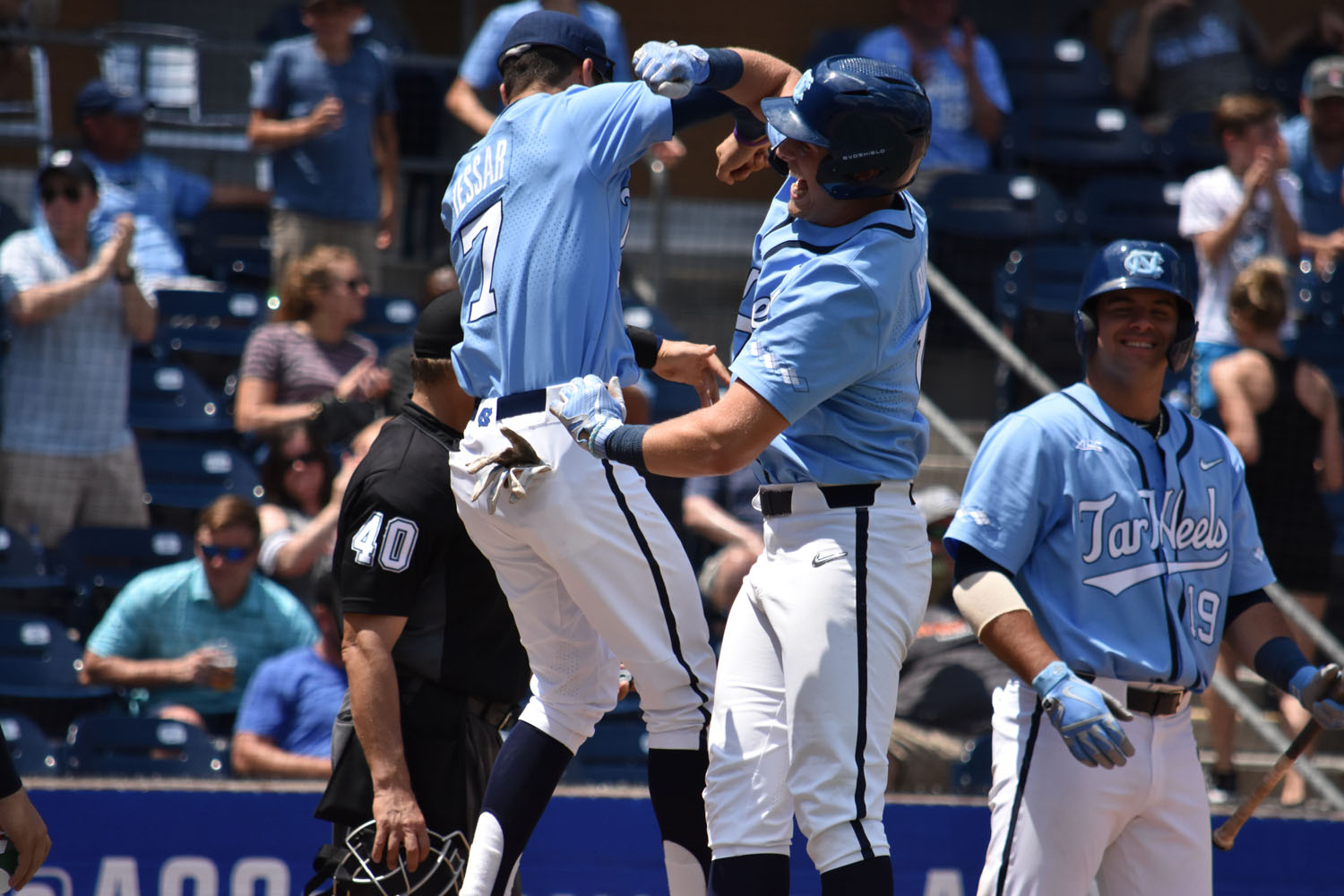
UNC Hosting Regional to Open NCAA TournamentUNC baseball entered the ACC Tournament on the bubble to host a regional to open the NCAA Tournament, but a conference title solidified Carolina’s place as a host. The Tar Heels will open NCAA Tournament play in Chapel Hill and will be joined by second-seeded Tennessee, No. 3 seed Liberty and fourth-seeded UNC – Wilmington. […]
›












Comments on Chapelboro are moderated according to our Community Guidelines